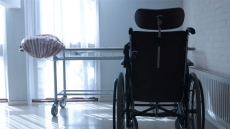In a pioneering research, a Google life sciences team - which has two senior Indian-origin researchers - is set to find signs of deadly diseases like cancer by sending 'nanoparticles' in the bloodstream of a person and then get the results via a wearable device.
The aim is to provide an early warning system for life-threatening diseases which can lead to an effective treatment, Wall Street Journal reported.
“Every test you ever go to the doctor for will be done through this system,” Andrew Conrad, head of the Life Sciences team at the Google X research lab, was quoted as saying at a WSJ conference.
The tiny “nanoparticles” will be delivered via a pill.
They would attach themselves to cells, proteins or other molecules inside the body to find out of something is wrong.
Researchers are currently looking for coatings that will help “nanoparticles” bind to specific cells, the report added.
According to Conrad, the firm will not collect or store medical data itself but will license the technology to others.
Google has hired more than 100 experts for the project from disciplines including astrophysicists, immunology, biology, oncology, cardiology and chemistry.
Vikram (Vik) Bajaj, scientific lead for Google X's nanotechnology programme, is one of the members of the Google life sciences team.
Bajaj is an expert in areas like molecular imaging, magnetic resonance imaging (MRI) for diagnostics, the structural biology of neurodegenerative disease, millimeter wave devices and clinical bioinformatics.
The other Indian-origin researcher is Sanjeev Mariathasan, scientific lead for systems immunology on the nanotechnology project.
Mariathasan's research interests include mechanisms of inflammation, malignant blood disorders and infectious disease.





